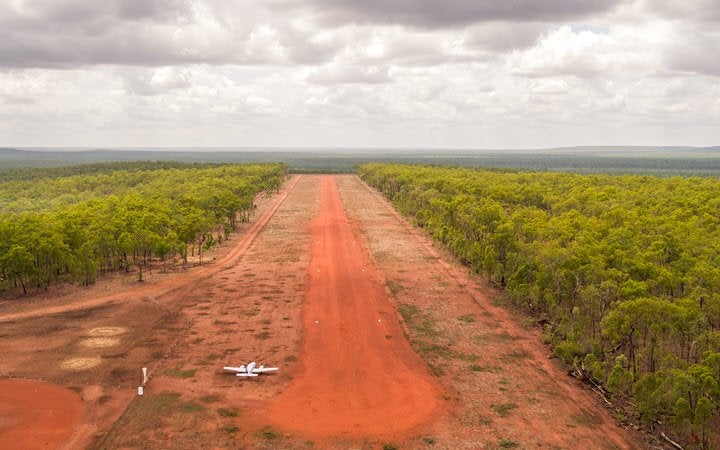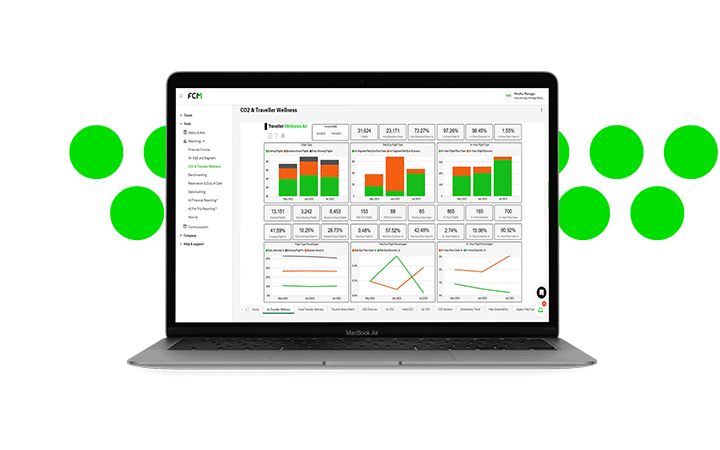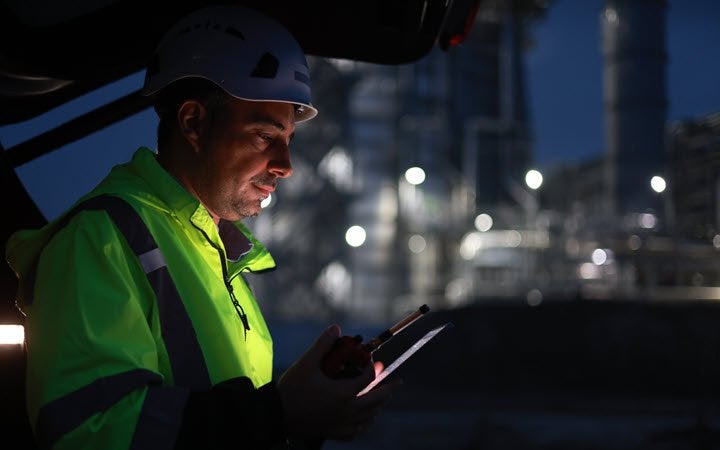INSIGHTS
Keeping your workforce safe on the way to work
Resource industry travel is far from your typical corporate trip. The resources industry inherently operates under challenging conditions, with unique risks. Think remote sites, hazardous locations and complex regulations.
The risks associated with getting your workers to and from high-risk environments are extensive and constantly changing. Organisations need to be extra vigilant to fulfil their responsibilities towards their workforce, and to meet industry and Government safety standards. The answer is to thoroughly understand and carefully manage the travel risks.

Remote access and emergency response
Resource operations are often located in remote regions. This in itself introduces its own set of challenges. Infrastructure can be minimal, emergency response times can be lengthy and transport options can be limited at best. Fly-In, Fly-Out (FIFO) and Drive In, Drive Out (DIDO) workers are often required to travel great distances, on a regular basis, to reach remote sites. Long flights, irregular hours and difficult travel schedules can cause significant fatigue, which in turn can affect productivity and safety.
Being prepared to provide an emergency response to any situation that arises is essential. Thorough travel processes should be in place to enable fast and efficient personnel evacuation or medical transfer. A travel management company with after-hours support and resources is vital in a crisis. For this reason, FCM Travel provides 24/7 advice and hands-on support by travel managers within Australia. Assistance from experts with first-hand knowledge of your location, and transport options, is invaluable when something goes wrong.
Political instability & weather
Many overseas mining, oil and gas operations are located in areas familiar with political instability. A growing number of local FIFO employees travel to operations in Africa, Papua New Guinea and Indonesia. For many of these professionals, choosing to FIFO is preferable to relocating their families to areas with security issues, lack of quality education options and challenging living conditions.
Within Australia, workers are often exposed to extreme weather conditions or they work in remote regions at risk of natural disasters. These factors can cause project delays, disrupt logistics, and put workers at risk. Meeting employee duty of care responsibilities needs to be factored into your travel risk management strategy.
So what can you do?

1. Traveller tracking & location monitoring
One of the most effective ways to ensure the safety of your workers, is to know exactly where they are at all times. Something that is essential with a mobile workforce, FIFO/DIDO workers and executives regularly travelling. As the resource sector have a growing reliance on mobile devices, they are ideally suited to real-time tracking systems.
A purpose built app, such as FCM Platform, can give your travellers access to urgent alerts and travel safety information, and 24/7 support from real travel experts. It also allows travel managers to quickly locate travellers quickly, should travel or weather circumstances change suddenly. By adopting the very latest technology tools, you can streamline processes for your travellers too. Mobile apps give travellers ownership of their bookings and itineraries. This can help reduce traveller stress by providing flight delay information, gate change notifications and destination weather reports directly to their device.
2. Emergency response plans
Maintaining a robust safety culture is a high priority in the resources sector. Having a strong emergency travel response plan in place is vital for handling crises. Travel management companies need to be able to demonstrate a proven track record in assessment and management, real-time monitoring, emergency preparedness and response planning. Pre-arranged evacuation procedures for high-risk areas should be worked into your travel management strategy. Contingency plans should also highlight charter flight options, rapid emergency medical response partners and emergency accommodation.
3. Fatigue management
Worker fatigue is a very real challenge in FIFO arrangements. Apart from the often hazardous physical nature of the work, the FIFO lifestyle can have a significant impact on workers’ overall health. By optimising travel schedules you can help reduce the risk of fatigue-related issues. One consideration is to source accommodation as close to the work site as possible. Naturally this can be a challenge in remote areas, or simply not doable. Booking direct flights for workers can also reduce travel fatigue and ensure people have more time at home with family and friends. Charter flights can be a good option, especially as helicopters and smaller aircraft can access more airports with shorter runways. Here, group travel rates and contracts can be negotiated to make direct private charter flights more affordable. Consider that the costs can be offset by happier, healthier and more productive workers.
High compression rosters and travelling long distances which encroached on their limited time off added to stress and fatigue levels according to interviewees.
Source: WA Mental Health Commission Report 2018
4. Adopt traveller wellness reporting
Wellness goes far beyond just the physical. The life of a FIFO worker is marked by long shifts designed to maximum their rotation, isolation and high-pressure environments. This can trigger a range of health issues, such as anxiety, stress, mental fatigue and sleep disorders. Keeping an eye on all-round traveller health is vitally important in the resources sector. FCM’s CO2 and traveller wellness reporting feature, provides predictive wellness, and traveller stress, monitoring based on a range of factors. This dedicated tool has extensive reporting capabilities and can flag travellers taking extended trips, trips with tight turnarounds and red-eye flights over the weekend – or too frequently. It then scores individual travellers to highlight those who may be getting too close to burn out.
A 2022 study found that 33.4% of FIFO workers reported a high to very high risk of psychological distress, higher than that reported in the Australian population (13.0%).
Source: Health and related behaviours of fly-in fly-out workers in the mining industry in Australia: a cross-sectional study. Authors B. Yeboah-Asiamah Asare, S. Robinson, D. Powell and D. Kwasnicka.
5. Built-in compliance
Compliance isn’t just about controlling your bottom-line. It’s essential to ensuring workers stay safe, especially in remote and politically unstable countries. Embedded travel program compliance can limit out of policy bookings and control travel approvals. These guidelines can ensure workers only use vetted, reliable ground transport suppliers and stay in designated, safe accommodation.
A mobile traveller app can add another layer of traveller safety, monitoring and compliance control. To support duty of care obligations, the FCM mobile app and FCM Platform are synced to monitor relevant traveller warnings. The alert overview feature breaks down all safety alerts for the next 14 days, allowing you to assess conditions and review traveller plans in advance. The reporting feature also lets you drill down to see which travellers, locations and trips are potentially affected immediately, or by alerts occurring in the next 24 hours. While the FCM Platform ensures employees are able to be located, and contacted, at all times for complete peace of mind.

6. 24/7 support
No matter where in the world your workers are, they need to feel supported. 24/7 access to travel management support ensures help is always available - from answering logistical questions, to responding to emergency situations.
Partnering with a travel management company (TMC) that offers a high level of personal service is paramount in the non-stop resource industry. Technology and online automation offer many efficiencies. However with the resources sector operating around the clock, 365 days a year, having a dedicated travel manager to speak to when an issue arises is invaluable.
Investing in the services of a TMC that understands resource corporate travel management will improve safety, wellbeing and productivity. Their knowledge of key routes and new inventory, will help ensure workers travel to and from a site as quickly and as seamlessly as possible.


